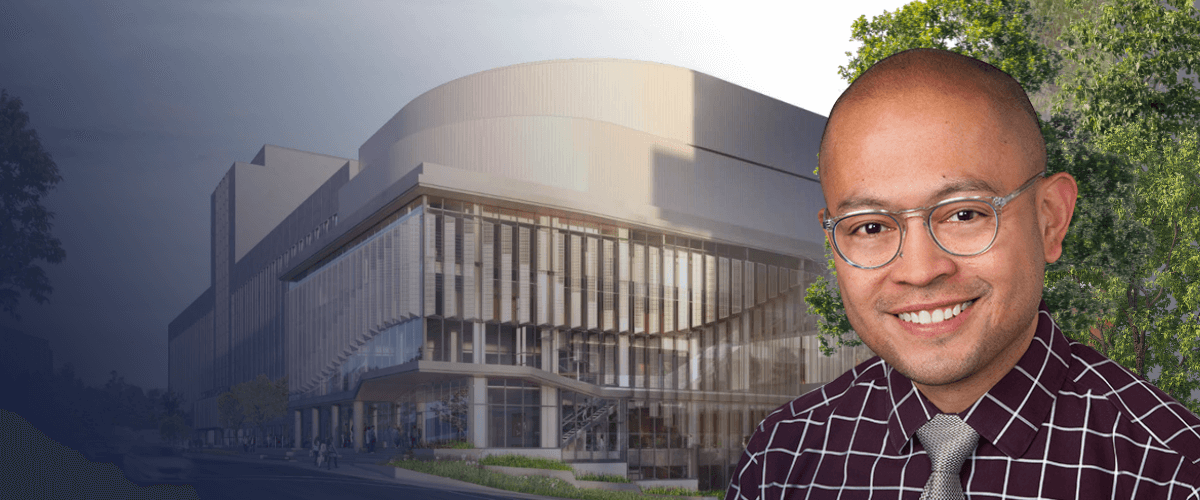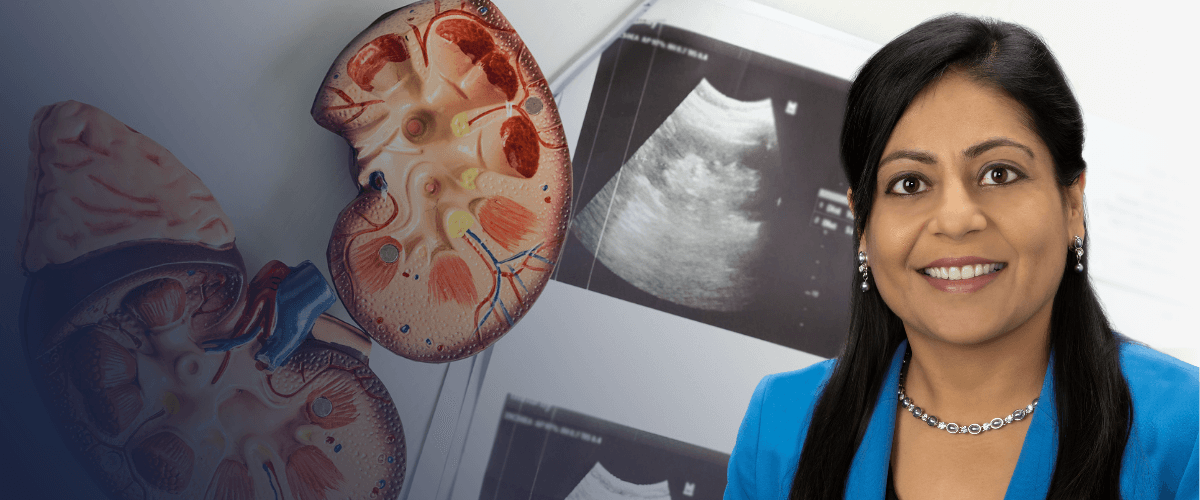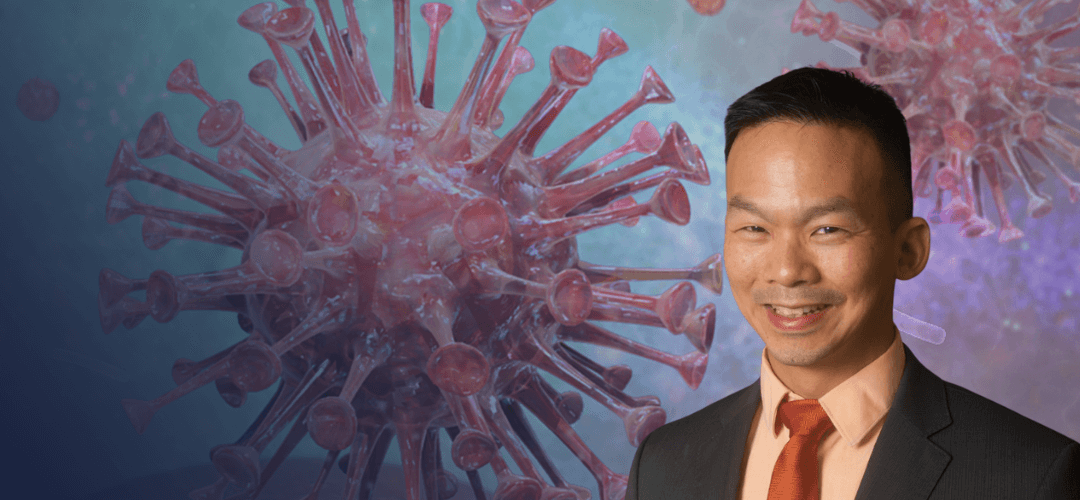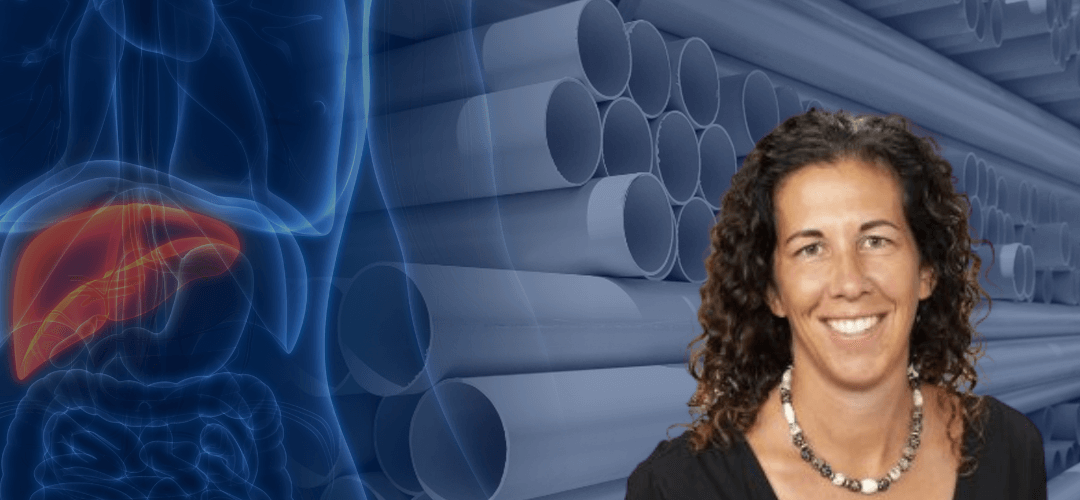Department of Medicine News

Department of Medicine
Research Day 2024
The 22nd Annual Department of Medicine Research Day will be held on May 1-2, 2024, at the Petersen Events Center and Scaife Hall with keynote speaker William A. Gahl, MD, PhD.

Bernard Macatangay, MD, appointed as new Chief of Infectious Diseases
A highly innovative physician-scientist, Dr. Macatangay’s research focuses on the role of immune regulatory mechanisms and pathways in chronic HIV-associated inflammation.

VMI and Aging Institute researchers to collaborate as part of new AHA SFRN research center
Department of Medicine faculty will study how lysosomes affect inflammation in vascular and brain diseases

New study by Bryant Shuey, MD, MPH, et al suggests women experienced increases in alcohol-related issues during the pandemic
The JAMA Health Forum study found that women experienced higher-than-expected rates of hospital admissions for alcohol-related liver diseases

Kidney-CHAMP program provides framework for future interventions for patients with kidney disease
Led by Dr. Manisha Jhamb, the program improved patient access to specialists and educational materials.

DOM researchers have developed a new tool to aid patients in decisions regarding sterilization
CONVERGE Faculty from the Division of General Internal Medicine created a simple, web-based decision aid to help pregnant individuals considering tubal sterilization

VMI researcher finds mechanistic basis for adverse impact of excessive dietary protein on cardiovascular risk
Dr. Babak Razani’s research, published in Nature Metabolism, shows that increased protein consumption can lead to atherosclerosis due to the amino acid, leucine.

Department of Medicine faculty honored with Chancellor’s Distinguished Awards
Drs. Mehret Birru Talabi, Marie Norman, and Thuy Bui
were honored for their commitment to research, training,
and public service.

How bacteriophage therapy could be used to treat drug-resistant bacteria
A new article by Dr. Daria Van Tyne highlights the potential utility of phage therapy to treat antibiotic-resistant enterococcal infections.

Dr. Jessica Merlin pens NEJM article focused on methadone and cancer treatment
The director of CHAMPP, Dr. Merlin and colleagues argue for health equity for people with opioid use disorder in a recent New England Journal of Medicine perspective.

ASCI honors Drs. Babak Razani, Aravind Cherukuri, and Yijia Li
Dr. Babak Razani elected as a new ASCI member while Dr. Aravind Cherukuri and Dr. Yijia Li named Early-Career Awardees by the ASCI for their dedication to advancing biomedical research as physician scientists.

New research shows relationship between education and cardiovascular health
Jared Magnani, MD, MSc, and colleagues found that lower educational levels are associated with cardiovascular disease risk throughout adulthood in a new JAMA Cardiology publication.

David A. Nace, MD, MPH named Chief of Geriatric Medicine
We are delighted to appoint Dr. Nace as Division Chief of Geriatric Medicine, and his experience and leadership as a researcher, educator, clinician, and administrator will help take the Division to a new level of excellence.

Noted physician-scientist, Anne Marie Lennon, MBBCh, PhD, named Chair of Medicine
Dr. Lennon, an expert in pancreatic cancer, will join the University of Pittsburgh on March 1, 2024.

Pitt one of nine recipients of new HHS grant focused on underserved, rural, vulnerable, and minority populations with long COVID
The Pitt Improving Access to Culturally Relevant Long COVID Care and Treatment (IMPACCT) Program will be led by Drs. Alison Morris and Frank Sciurba from the PACCSM division.

New research fund established within the Division of Endocrinology and Metabolism to advance diabetes research
The Frank Calandra Jr. Research and Innovations in Diabetes Fund will provide the Kershaw lab with resources to further ongoing research initiatives within her laboratory.

Drs. Katie Berlacher and Sarah Gaffen named inaugural recipients of the Magaret Ragni Award for Advancement of Women in Medicine and Science
The award recognizes Drs. Berlacher’s and Gaffen’s commitment to research, inclusivity, and mentorship as women leaders in the Department of Medicine

Renal-Electrolyte Division receives an NIDDK U54 George M. O’Brien Kidney National Resource Center award
The center will provide critical resources to investigators across the nation to advance studies of kidney function.

Rohit Aggarwal, MD, MS, named a 2023 Heroes in Research by the Myositis Foundation
The award is in recognition of Dr. Aggarwal’s commitment to myositis research as Co-Director of the UPMC Myositis Center.

Ora Weisz, PhD, is the recipient of the 2023 Sandra K. Masur Senior Leadership Award
The award given by the American Society of Cell Biology honor outstanding career scientists with a record of mentoring women and individuals from underrepresented groups.

Cardiology faculty Dr. Oscar Marroquin named Vice Dean for Clinical Affairs
Marroquin has also been named president of UPMC’s Physician Services Division

Four Department of Medicine faculty awarded Richard King Mellon Foundation Awards for aging-related research
Drs. Lori Birder (Renal-Electrolyte), Yuan Liu (Pulmonary/Aging Institute), Andrey Parkhitko (Endocrinology/Aging Institute), and Bokai Zhu (Endocrinology/Aging Institute) receive a total of $1 million for translational research on aging.

Now accepting applications for the 2023 Samuel and Emma Winters Foundation Awards
The awards provide up to $10k for biomedical research in the greater Pittsburgh area.

New Nature Immunology paper from Daniella Schwartz, PhD, provides a new potential biomarker to guide precision medicine for IL9-related diseases using JAK inhibitors.
A faculty member in the Division of Rheumatology and Clinical Immunology, Schwartz provides evidence that JAK/STAT-induced bystander activation causes Th9-driven allergic inflammation.

Pitt Researchers Discover New Way that Cells Monitor Iron Levels
In a new Molecular Cell study, a Pitt team including Shiori and Yusuke Sekine of the Aging Insitute, has uncovered a novel mechanism by which cells monitor iron availability, with low iron levels stimulating stress signaling pathways to preserve cell fitness.

Ken Ho, MD, awarded the 2023 Kerry Stoner Award
This honor from the Allies for Health + Wellbeing reflects Dr. Ho’s dedication to HIV research and clinical care for people living with HIV.

DOM Faculty elected to ASCI and AAP reflecting their dedication to biomedical research
Dr. Melanie Königshoff was inducted into the American Society for Clinical Investigation while Dr. Stephen Chan was inducted Association of American Physicians, both elite groups of physician scientists dedicated to advancing biomedical research.

How vinyl chloride, chemical released in the Ohio train derailment, can damage the liver – it’s used to make PVC plastics
DOM faculty member Juliane Beier, PhD, provides expert insight about the dangers of vinyl chloride

Pitt lands $14.3 million for research linking dementia and cardiovascular disease
Funded by the WoodNext Foundation, researchers will use an interdisciplinary approach to uncover the causes of two of the most costly and deadly illnesses in the U.S.

Three junior faculty in the Department of Medicine honored by the ASCI for their commitment to research
Drs. Cary Boyd-Shiwarski and Mark Snyder have been awarded ASCI Young Physician-Scientist Awards while Dr. Richard Ramonell has been named a recipient of the Emerging-Generation Award.


